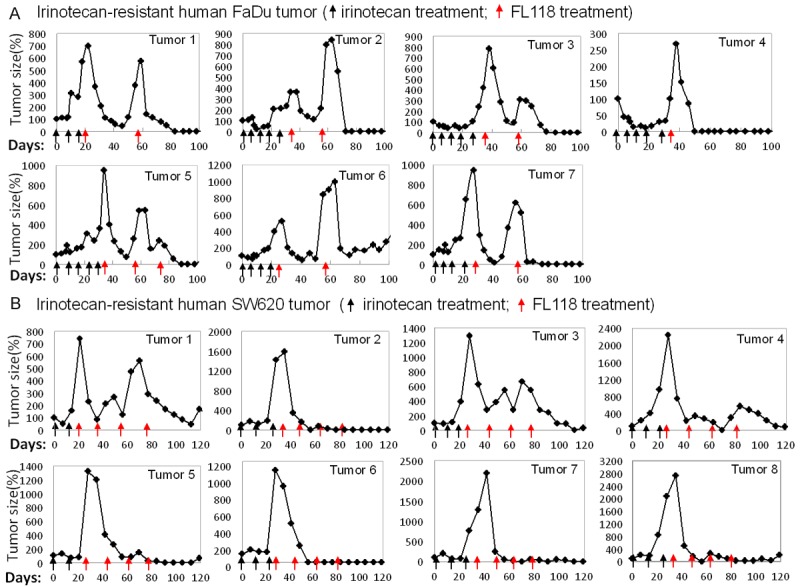Figure 2.

FL118 regresses human tumor that acquired irinotecan resistance: (A) Human head-&-neck FaDu tumors were subcutaneously inoculated on SCID mice. Treatment was initiated 7 days after the transplanted tumors reached 100-200 mm3 (designated day 0). Mice with FaDu tumor xenografts were first treated with irinotecan at its MTD (100 mg/kg, IP) weekly for 3-5 times (black arrows) until tumor acquired irinotecan resistance. After tumor acquired irinotecan resistance (tumor grows while treating), mice were then treated with FL118 (1.5 mg/kg, IP) with every other day for five times (q2d × 5) as one cycle. If tumors relapse, mice were treated with FL118 for second or third cycles (red arrows). Tumor curves are shown as individual tumor profiles after treatment. Of note, 2 FaDu tumors did not acquire irinotecan-resistance after 5 time irinotecan treatment (data not shown). (B) Mouse models of human colon SW620 tumors were established same as in (A). Irinotecan treatment (black arrows) as in (A) until resistant tumor appears (tumor grows while treating), followed by FL118 treatment (red arrows) as in (A). In this experiment, mice were treated with FL118 for total 4 cycles (red arrows). Tumor curves are shown as individual tumor profiles after treatment. Tumor mice without drug treatment were sacrificed within two weeks due to tumor size over 1500 mm3.
